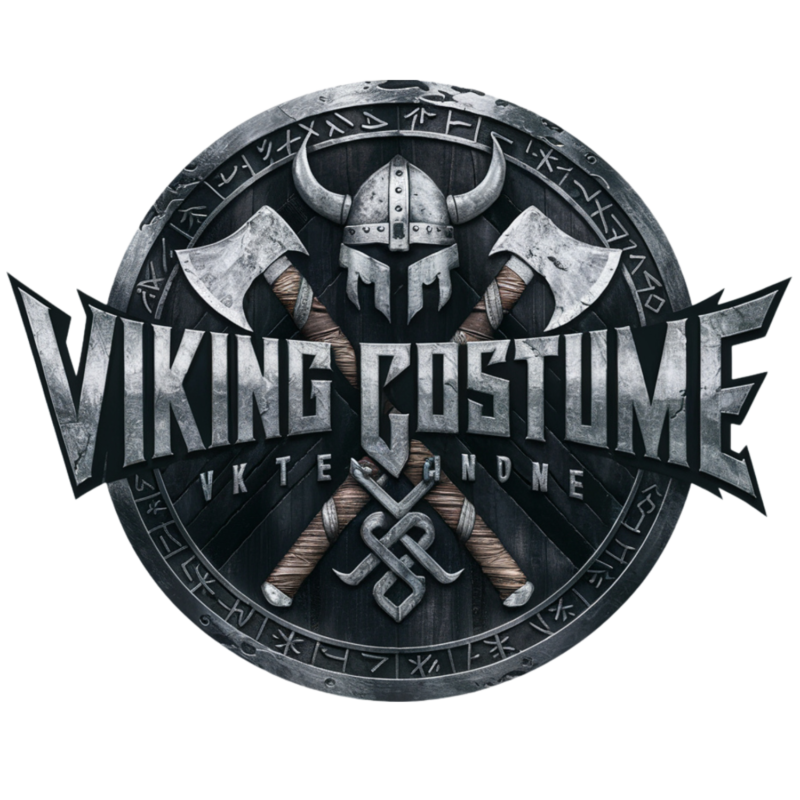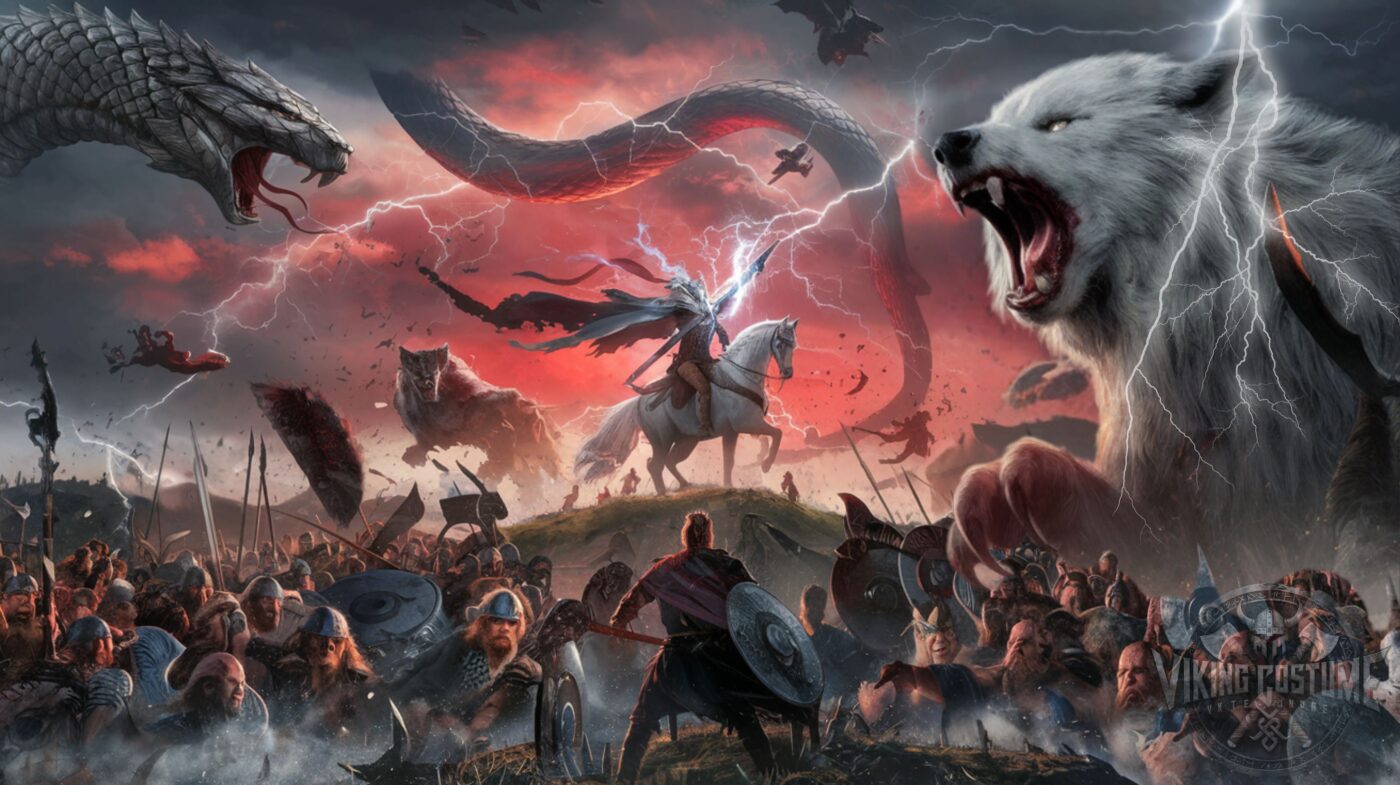Blog, Viking History & Mythology
What is Ragnarok? Exploring the Origins and Mythology of the Norse Gods
Ragnarok, in Norse mythology, is a captivating tale of the world’s end and rebirth. From its origins to the prophecy, you’ll uncover a mysterious journey connecting gods, heroes, and the fate of the entire universe. Dive deeper into the meaning of Ragnarok and discover why this story continues to hold power even today
What is Ragnarok? An Overview of the Norse Mythology
Ragnarok, also known as “The Doom of the Gods” is one of the greatest stories in Norse mythology. However, if you are not familiar with it, you may be wondering: What is Ragnarok Norse mythology? It is not a simple story of doom, but a war between the gods and destructive creatures, leading to the rebirth of the world. The event follows a tragic scenario, ending with the destruction of everything. But the interesting thing is that even after this end, there is still hope for a new world. In this article, we will explore the basic elements of the myth of Ragnarok, from its ancient origins to the prominent figures in this story. To better understand this event, we need to look at its context in Norse mythology, a belief system steeped in warriors and mortals, where gods and magical creatures decide the fate of the universe.
The Origins of Ragnarok: Tracing the Roots of the Norse Apocalypse
The origins of Ragnarok are tied to ancient Viking texts, most notably the Poetic Edda and Prose Edda, two epics that record the legends of the world of the gods. According to these documents, Ragnarok is predicted by signs such as the long and dark winter (Fimbulwinter), the battle between the forces of nature and the gods.
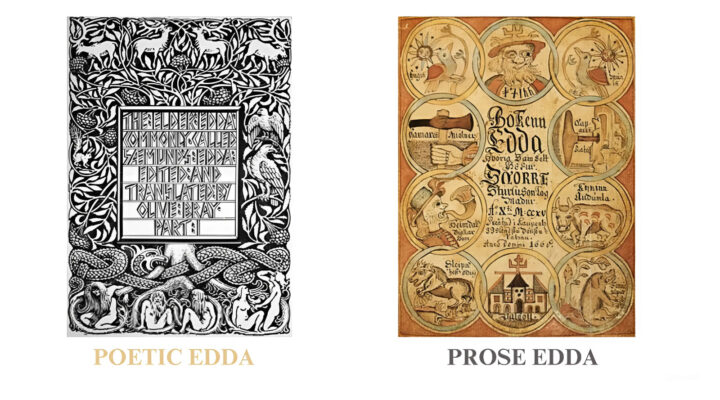
The story of Ragnarok Norse mythology is not simply about destruction but also reflects a cycle of rebirth and transformation of the world. These myths have carved the image of warrior gods, who fight for the survival of the world. This event has its roots in a deep belief in the balance of the universe, where life and death always go hand in hand. You can see that in the myth of Ragnarok, the death of the gods is not just the end but part of the eternal cycle of beginnings and endings
The Story of Ragnarok: The End of the World in Norse Mythology
Ragnarok is the inevitable end of the gods in Norse mythology. The story begins with terrible signs: dark winter (Fimbulwinter), storms and fierce battles. The gods, including Odin, Thor, Loki, Freya and many others, prepare for this day. But this is not an easy ending. On the contrary, it is a life-and-death battle between the gods and the forces of destruction: monsters, dragons, and giant creatures from the outside world. This event leads to the death of many famous gods, such as Odin being devoured by the wolf Fenrir, Thor fighting the snake Jörmungandr to the death. However, after all, a new world will emerge from the ruins, where life will begin again. The Myth of Ragnarok represents intense change, a cycle of life and death that cannot be stopped, and even with destruction, there is rebirth, suggesting the immortality of eternal life.

This event results in the deaths of many famous gods, such as Odin being devoured by the wolf Fenrir, Thor fighting the snake Jörmungandr to the death. However, after all this, a new world will emerge from the ruins, where life will begin again. The Ragnarok myth represents drastic change, a cycle of life and death that cannot be stopped, and even when there is destruction, there is rebirth, suggesting the immortality of eternal life.
The Norse Gods in Ragnarok: Heroes, Villains, and Their Fate
In the story of Ragnarok, the Norse gods not only act as protectors of the world but also as warriors facing a cruel fate. What is Ragnarok Norse mythology without gods like Odin, Thor, and Loki? Each god has his own fate, from glorious victories to tragic deaths in the final battle. Odin, the king of the gods, will sacrifice his life to protect the world, but cannot stop the destruction of Fenrir. Thor, the god of thunder, will face the sea serpent Jörmungandr in a battle to the death, ending in the death of both. Meanwhile, Loki – the villain of the myth – will lead the army of evil forces, destroying everything the gods have built. The story of Ragnarok Norse mythology is not just a battle between the forces of good and evil, but a test of love, sacrifice, and unchangeable fate.
The Myth of Ragnarok: The Prophecy and the Final Battle
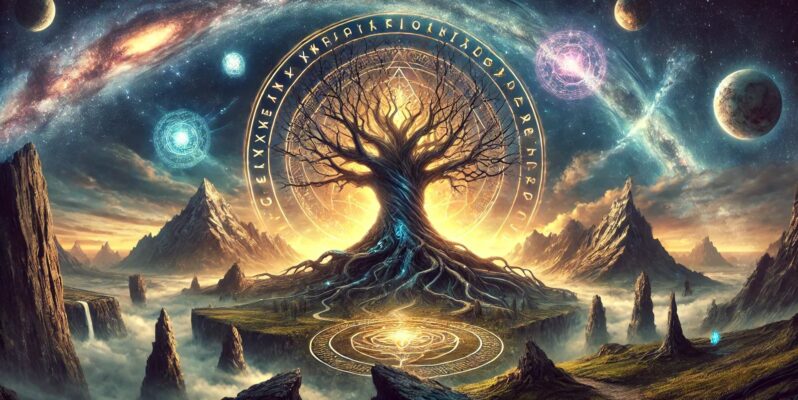
Ragnarok is not a random event but a prophecy recorded in ancient Viking texts. According to the Poetic Edda, the gods were forewarned of their destruction, but they still could not stop the war. The Myth of Ragnarok is also a warning about the change of the universe, that a new world will be born from the destruction of the old world. The final battle between the gods and the monsters is not only for life but also to confirm the fate of each person. Although this event is tragic, it also demonstrates the immortality of values, sacrifice and the power of the gods in maintaining the existence of the world. Ragnarok Norse mythology is not only a story of the end but also of rebirth, showing an eternal cycle of life.
Ragnarok’s Impact: Why the Norse Gods and Their Mythology Endure Today
Although Ragnarok ended with the destruction of many of the gods, the story lives on in the minds of people. The myths of Ragnarok have transcended time and space, from ancient stories to modern pop culture. Gods such as Odin, Thor, and Loki continue to be referenced in movies, books, and video games.
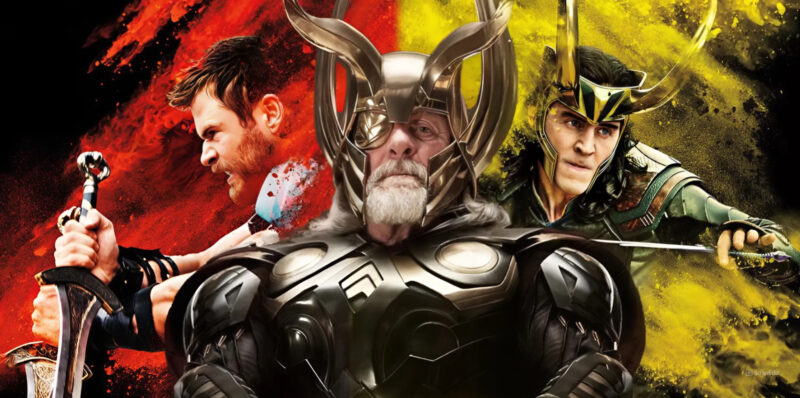
Ragnarok Norse mythology has influenced many cultures and ideas, from the ideology of battle to stories of sacrifice and rebirth. Even today, we still find a connection to these gods in stories of the constant struggle to overcome the challenges of life, whether they bring failure or success.
The Enduring Legacy of Ragnarok in Norse Mythology
Ragnarok stands as one of the most profound and powerful stories in Norse mythology, blending destruction with hope for renewal. It marks a tragic end that paves the way for a new cycle, where the world is rebuilt with balance and fresh opportunities. The myth of Ragnarok transcends time, carrying a timeless message about the eternal cycle of life, death, and rebirth.
The tale of the gods’ downfall celebrates courage, sacrifice, and unyielding spirit. These deities, fully aware of their destined demise, fought valiantly, reminding us that the essence of life lies in how we confront adversity. It serves as a profound lesson about resilience, overcoming challenges, and holding faith in a brighter future. At its core, Ragnarok calls upon us to keep hope alive and take action, no matter the obstacles life places before us.
